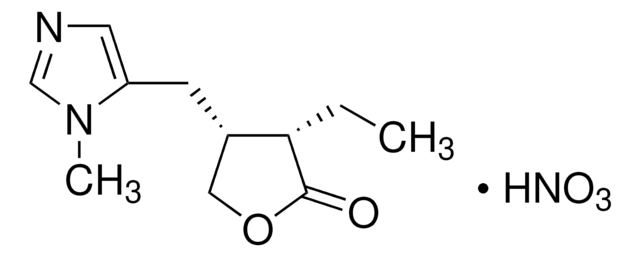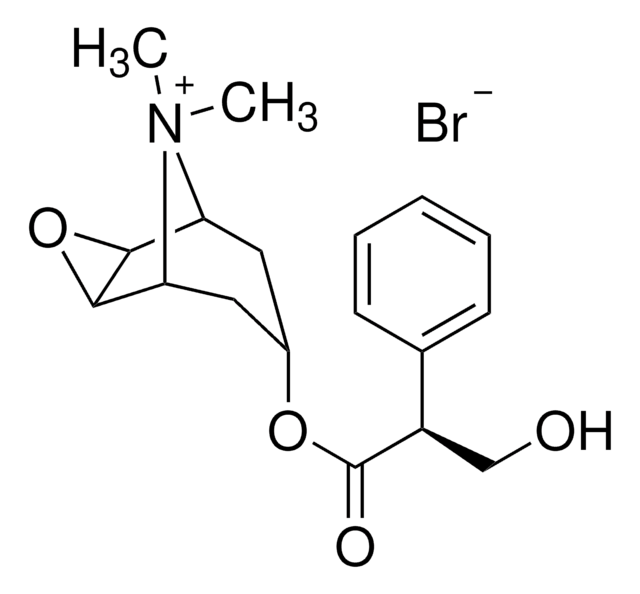P0597
Pilocarpine nitrate
meets USP testing specifications
Synonym(s):
Pilocarpine nitrate salt
About This Item
Recommended Products
Agency
USP/NF
meets USP testing specifications
Quality Level
form
crystals
application(s)
pharmaceutical (small molecule)
SMILES string
O[N+]([O-])=O.CC[C@H]1[C@H](COC1=O)Cc2cncn2C
InChI
1S/C11H16N2O2.HNO3/c1-3-10-8(6-15-11(10)14)4-9-5-12-7-13(9)2;2-1(3)4/h5,7-8,10H,3-4,6H2,1-2H3;(H,2,3,4)/t8-,10-;/m0./s1
InChI key
PRZXEPJJHQYOGF-GNAZCLTHSA-N
Gene Information
human ... CHRM1(1128) , CHRM3(1131)
Looking for similar products? Visit Product Comparison Guide
Biochem/physiol Actions
Signal Word
Danger
Hazard Statements
Precautionary Statements
Hazard Classifications
Acute Tox. 2 Inhalation - Acute Tox. 4 Oral - Ox. Sol. 2
Storage Class Code
5.1B - Oxidizing hazardous materials
WGK
WGK 3
Flash Point(F)
Not applicable
Flash Point(C)
Not applicable
Personal Protective Equipment
Choose from one of the most recent versions:
Already Own This Product?
Find documentation for the products that you have recently purchased in the Document Library.
Our team of scientists has experience in all areas of research including Life Science, Material Science, Chemical Synthesis, Chromatography, Analytical and many others.
Contact Technical Service



